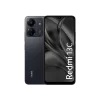We finally got our hands on an Astro device and we were fortunate enough to be given one of their most expensive devices to review. This is exciting because we are able to review what they have as their “best foot forward” and ultimately draw a conclusion on what their brand stands for device wise.
At $399, the Astro Funbook, like the Astro brand, divides opinion in that we definitely see how they are trying to innovate and standout from the crowd, but at the same time it’s not quite coming together at this stage. It’s a really difficult balance to execute and to deliver a verdict on a young local brand. However, we will have to do our job and load the effort and still point out the flaws that we hope Astro are aware of and continually trying to improve on.
Key Specs

Design
The Astro Funbook is an 8” grey and white Android Jelly Bean (4.1.2) tablet with silver trimmings that definitely give it a high score on aesthetics. Although Astro highlights that it has a metal shell, this particulart type of metal is probably not the best around and although the device is light, it also looks very fragile and good care is paramount when handling it.
On handling, because of the sheer size, it’s a tablet that you will have to have both hands on deck when typing.
Screen
The Astro Funbook has an 8” inch 1024 x 768 resolution IPS screen that is really smooth and responds very well to hand movements. It is quite good for video and games (the ones compatible) as it has a wider view compared to 7” tablets. Bigger is better as they say.
Processor
Predictably, the Astro Funbook has a Cortex A9 Quard Core 1.5 GHz processor designed for price sensitive devices way below the Funbooks $400 range. It performs quite well with smaller apps but it does not perform smoothly with larger apps especially 3D games. Some games like FIFA and Monopoly Slots could not run on the Astro Funbook.
Save for a few isolated cases of lag time when launching apps, it performs well for primary apps and the processor is still praised for its energy efficiency.
Camera
The 5MP rear camera on the Astro Funbook is average. The quality of images it captures are not good enough compared to other lower priced devices. The camera has a really difficult panorama function that Astro could have excluded all together.


Battery
With a high capacity 4300mAh battery that is supported by an energy efficient processor, you can enjoy using the Astro Funbook for longer hours. Charging the battery to full capacity takes up to 3 to 4 hours depending on whether you are using a direct electricity switch or PC.
App Ecosystem
Astro had previously made claims that they develop their own apps and today we can confirm that those claims are indeed true, although the Astro Market seems to be a purchased app market. However, the device still has the Cash Flow Optimiser app for Kingdom AfriAsia, an “Astro Help app” (on device user manual), and Driver Manual app that has driving tutorials for our local market. Something strange we noticed though is the market has a generous supply of NSFW adult apps. It’s definitely something we didn’t expect but we’re guessing sex sells?
Although the apps are not world class yet, the initiative is quite impressive and useful for a brand that is looking to innovate and go beyond the standard we have come to expect from local smart devices brands. We are told that Astro has several local android programmers on board which can only benefit the whole tech ecosystem in Zimbabwe.
What the Benchmarks say
The two leading benchmarks are not impressed with the Astro Funbook. We used the Qualcomm developed Vellamo and AnTutu and both give it a low rating. On AnTuTu, the Astro Funbook has a low 7927 about a fifth the score of the highest ranking Samsung Galaxy Note 3. The Vellamo benchmark is more telling with a low 327 score, 955 points lower than the highest ranking Samsung Galaxy note 3. Other devices within the $400 range like the Google Nexus 10 rank significantly higher on both benchmarks.
The Vellamo benchmark also does a solid HTML5 test which basically tests efficiency in web browsing and the score is also low here.
When loading Opera Mini on the Astro Funbook, make sure it’s the one specifically made for tablets (around 8mb file size). Other versions do not load text. Google Chrome was an issue as it crashed each time we tried to enter a URL. This could be an isolated glitch occurring in our unit only but there’s no telling. The default browser however works really well.
Our Verdict
The way they designed the Funbook gives it a very good first impression and it’s something that you will immediately like just by looking at and holding. However, further scrutiny left us a wee bit wondering if it is really a good buy at $399. More could have been done on the camera, processor and the agility of the device.
In term of competing tablets available locally that you need to keep in mind in making this buying decision it’s these; the iPad Mini 16GB available for $550, the Galaxy Tab 2, 7″ going for $370, or the Galaxy Tab 3, 8″ for $550. There’s also the Huawei Media Pad 7 going for just $250, albeit with some much compromised specs.
Their apps ecosystem is definitely far from perfect but it is nevertheless a good initiative that will be interesting to follow as it develops further.












One response
Adjust your prices. They mean everything